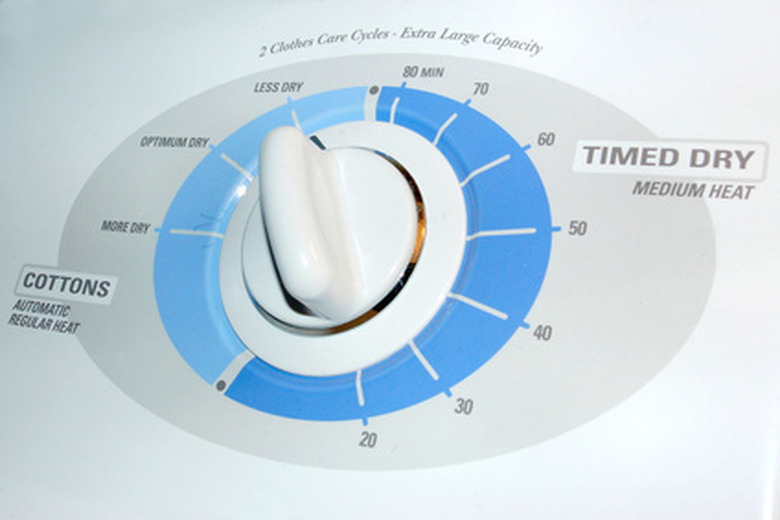How Many Watts Does A Dryer Machine Consume?
Clothes dryers tend to have relatively similar design, operation and energy needs. They all use a small electric motor to power a rotating drum. As the drum rotates, the clothes "tumble," exposed to warm, drying air that an electric fan helps to circulate. The precise wattage of a clothes dryer varies according to the specific model; however, there is relatively little difference in wattage requirements.
General Wattage Requirements
General Wattage Requirements
According to the U.S. Department of Energy's Energy Savers website, clothes dryers typically consume between 1800 and 5000 watts. By comparison, clothes washers generally use between 350 and 500 watts. Clothes irons are at the lower end of the spectrum, using between 1000 to 1800, whereas water heaters are one of the few common appliances to demand as much or more wattage than clothes dryers, averaging 4500 to 5500 watts.
Energy Efficiency
Energy Efficiency
Because most clothes dryers have relatively similar energy requirements, the U.S. Department of Energy doesn't even list dryers among the appliances on their Energy Star database, the official listing of energy-efficient models of household appliances. However, there are several factors you can keep in mind to find the most energy-efficient dryer available. Opting for a gas-powered dryer instead of a fully electric dryer can reduce your energy bills. While all dryers have some electrically-powered components, a gas-powered dryer uses gas to provide heat to the dryer's drum. If you decide to install a gas-powered dryer, ensure that your laundry room has sufficient ventilation.
Energy Factor
Energy Factor
When comparing the energy efficiency of various clothes dryers, the wattage itself is less helpful than a second figure, called the energy factor. Just as a car model has a specific number of miles per gallon, a clothes dryer's energy factor reflects the pounds of clothing it can dry per kilowatt-hour of electricity it uses. A higher number reflects a more efficient model. Electric dryers must have energy factors of at least 3.01, and gas dryers must have minimum energy factors of at least 2.67. Note that the energy factor for gas dryers still uses kilowatt-hours as its unit even though the appliance primarily uses natural gas, making it impossible to compare the energy factors of a gas dryer versus an electric one. On the other hand, you can use the energy factor to compare the efficiency of two machines with the same power source.
Understanding Wattage
Understanding Wattage
Wattage refers to electrical power, or the flow of electricity that goes through a circuit. In other words, watts measures how much electrical energy is traveling through a circuit per second. You can also understand wattage, or power, in terms of joules (a unit of energy) per second.
